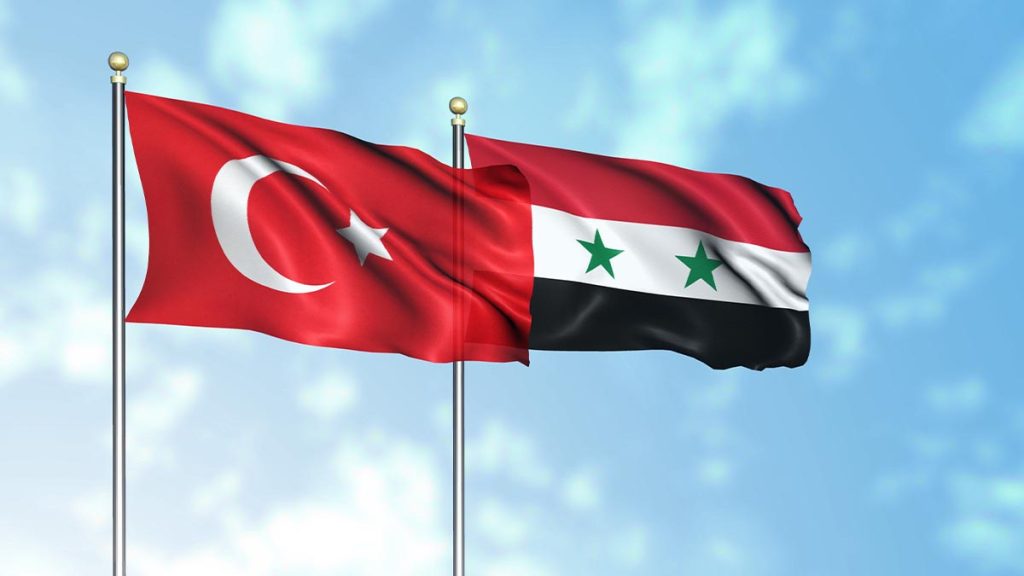Feeling a call to help, doctoral candidate Ahmet Tarık Çaşkurlu rallies community support for Turkey and Syria relief efforts.

On the night of Feb. 5, Ahmet Tarık Çaşkurlu was in his Chapel Hill apartment after having dinner with his fellow graduate students, when text messages began lighting up his phone.
They came from friends and family in Turkey, his home country, where it was early morning, Feb. 6, and the news was grim. A powerful earthquake had struck in the country’s southeast, near Syria. Communication lines were down. Roads were out. No one knew the scale or scope. Nine hours later, a second earthquake hit. The texts brought scant details and left Çaşkurlu in a fog of chaos.
By day two, as the fog began to lift, “the picture became clear,” says Çaşkurlu, a first-year history doctoral student from Istanbul. “Imagine apartment buildings of seven, eight stories each, 7,000 of them, just completely gone. And imagine this happening in the middle of the night when everyone is in their buildings sleeping.”
Learn why the earthquakes were so devastating from Carolina geologist Kevin Stewart, who explains how a strike-slip fault caused the original 7.8 magnitude temblor and its aftershocks.
The unfolding tragedy evoked one of Çaşkurlu’s earliest memories — surviving the Aug. 17 Izmit earthquake in Turkey as a 5-year-old in 1999. During that disaster, which killed more than 17,000 people, his home in a historic Istanbul neighborhood did not collapse, but his family was forced out for nearly a week before the structure was deemed safe.
After last month’s quakes, Çaşkurlu felt an immediate need to help. “I have many friends in Turkey who are very engaged civically,” he says. “A lot of friends went to the earthquake region as volunteers. Some of them are medical professionals. Some of them are just people like me who don’t have any tangible skills like search and rescue, but they still wanted to help.”
On Feb. 8, two days after the first earthquake, Çaşkurlu and other members of Carolina’s Turkish Student Association joined with the Arab Student Organization and Muslim Student Association to hold a fundraising event in the Pit, donating proceeds to the Turkish Red Crescent. The student organizations held other fundraisers on Feb. 10 and 15, with money going to relief organizations working in Syria and Turkey. In all, they raised $5,500.
“People have shown a lot of kindness and compassion. We’re very thankful for that,” Çaşkurlu says. But more is needed, especially for long-term recovery to meet economic, medical, psychological and engineering needs.
Future fundraisers
As outreach committee chair of the Turkish Student Association, he is helping plan a fundraising event later this month and another in April.
The first is a potluck iftar, the name of the meal eaten after sunset to break the fast during Ramadan, which begins this year on March 22 and ends April 21. Scheduled for March 27 at 7:30 p.m. at the Genome Sciences Building (near lecture hall 100, outside if the weather permits), the iftar is open to all, he says, including those fasting and not fasting, ethnic foodies or community members who simply want to support the relief effort. Admission at the door is $15.
The second is a benefit concert for earthquake relief showcasing various Turkish and American artists and genres at the Sonja Haynes Stone Center April 28 at 7 p.m. Admission is $18, $15 for students.
Carolina has 21 international students from Turkey and two from Syria, as well as four scholars from Turkey and three from Syria. Many more in the Carolina community have an interest in Turkey and Syria based on their studies and travels. But for those less familiar with the region and people left struggling by this natural disaster, one question that’s bound to come up: Why should I care?
Human solidarity
In answer, Çaşkurlu quotes an English translation of a poem by a 13th century Persian writer, poet and ethicist named Sadi of Shiraz:
“Human beings are members of a whole,
In creation of one essence and soul,
If one member is afflicted with pain,
Other members uneasy will remain.
If you have no sympathy for human pain,
The name of human you cannot retain.”
“Those lines are displayed in the United Nations as an anthem to humanity’s commonality and solidarity,” Çaşkurlu says. He also found the lines inscribed on a carrel plaque in Davis Library in honor of the Iraj Bahrani Memorial Endowment for Persian Study.
“When a calamity of this proportion hits humanity, we actually see a reason for optimism,” he says. “Showing solidarity in times like this is good for us. It helps restore our faith in humanity. It helps us fulfill our duty as human beings … to be stewards of creation.”
By Logan Ward, The Well
Carolina’s Center for Public Service provides recommendations from campus community members on how to support the local Turkish and Syrian communities and contribute to organized aid efforts.
